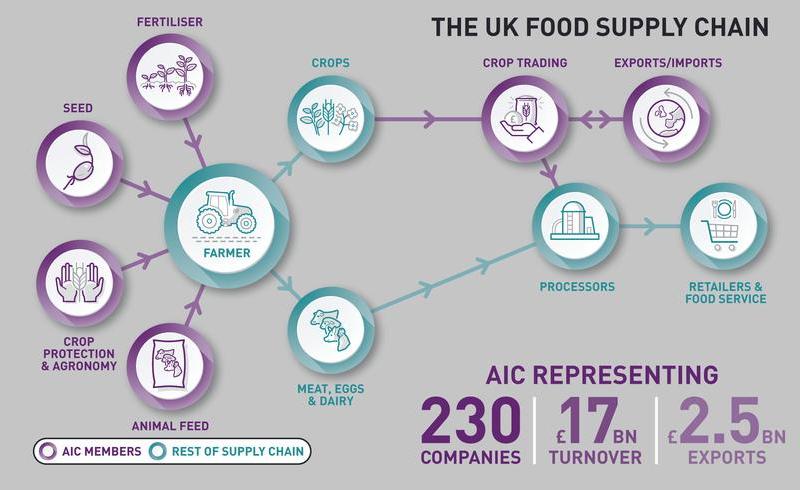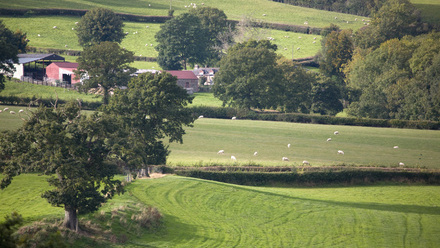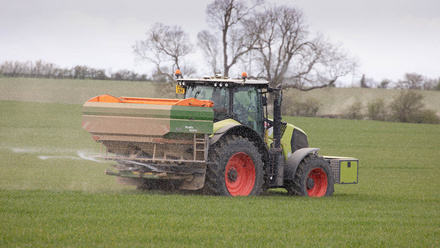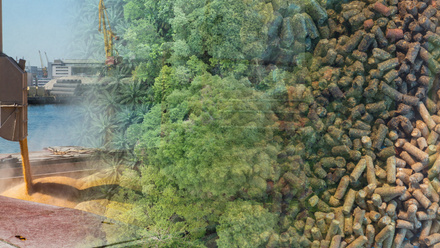Defra agrees with industry not to ban urea
AIC welcomes Defra’s decision to allow fertiliser suppliers and their FACTS qualified farm advisers to work in partnership with farmers to minimise ammonia emissions from agricultural fertilisers.
“We believe working together across the industry to deliver greater Nitrogen Use Efficiency for all nitrogen fertilisers is the best route forward,” said Robert Sheasby, AIC Chief Executive. “By utilising existing farm assurance structures farmers will be able to retain the use of solid urea, providing flexibility to use the right product at the right time to minimise environmental impact, whilst ensuring healthy plant growth and a competitive fertiliser sector.”
From 1 April next year, the Red Tractor farm assurance scheme will issue new environmental standards for all farmers in England requiring them to use protected fertilisers at the times of year when the risks of ammonia emissions are at their highest. Farmers will need to start to plan their fertiliser orders to meet the new standards which will be implemented from October 2023 and the fertiliser industry is ready to support them.
Commenting on the current market conditions, Mr Sheasby added, “We recognise that the hiatus in production exacerbated by conflict in Ukraine, and unprecedented gas feedstock prices, is currently affecting the affordability and availability of all fertilisers containing nitrogen and creating huge logistical and economic challenges. Inevitably the timeline for when full compliance with the scheme can be achieved will be affected by these external global factors, but this self-regulated action is a positive step in the right direction.”
The commitment made with Government is that by 2024-2025 all farmers in England will be able to meet the new requirements and all fertiliser containing urea will have to be protected against ammonia emissions if spread after 1 April each year. This will apply unless ammonia mitigation has been achieved by incorporating the fertilisers into the soil or with sufficient irrigation, as signed off by a registered FACTS-qualified professional.
In addition, new FACTS training on how to calculate and improve crop Nitrogen Use Efficiency including better nitrogen recovery from available organic resources will be rolled out in support of AIC’s wider campaign to achieve Farm Nutrient Balance as part of its Roadmap for a Sustainable Food Chain by 2050.
ENDS
About AIC
As the UK agricultural supply industry's leading trade association, the Agricultural Industries Confederation (AIC) represents businesses in key sectors within the supply chains that feed the nation.
Its Member businesses supply UK farmers and growers with the animal feed, fertiliser, seed, crop protection products, trusted advice and quality services that are essential to producing food, as well as trading crops and commodities across the globe.
Formed in October 2003 by a merger of three trade associations, today AIC has over 230 Members in the agri-supply trade and represents £17.8 billion* turnover at farmgate.
AIC works on behalf of its Members by lobbying policymakers and stakeholders, delivering information, providing trade assurance schemes, and offering technical support.

AIC Services manages a range of services, including Trade Assurance Schemes and professional registers recognised by the UK Government as essential means to underpin feed and food safety alongside fertiliser security.
These schemes and professional registers include:
- Trade Assurance Scheme for Combinable Crops (TASCC)
- Feed Materials Assurance Scheme (FEMAS)
- Universal Feed Assurance Scheme (UFAS)
- European Seed Treatment Assurance (ESTA)
- Fertiliser Industry Assurance Scheme (FIAS)
- Feed Adviser Register (FAR)
- Renewable Energy Directive (RED)
- Forage Assurance Scheme (FAA)
- AIC Services Palm Oil Credit Scheme (APOCS)
*According to a 2023 survey of AIC Members.
Press Contact
Wendy Ford, Communications Manager, AIC
+44 (0)1733 385230
[email protected]







